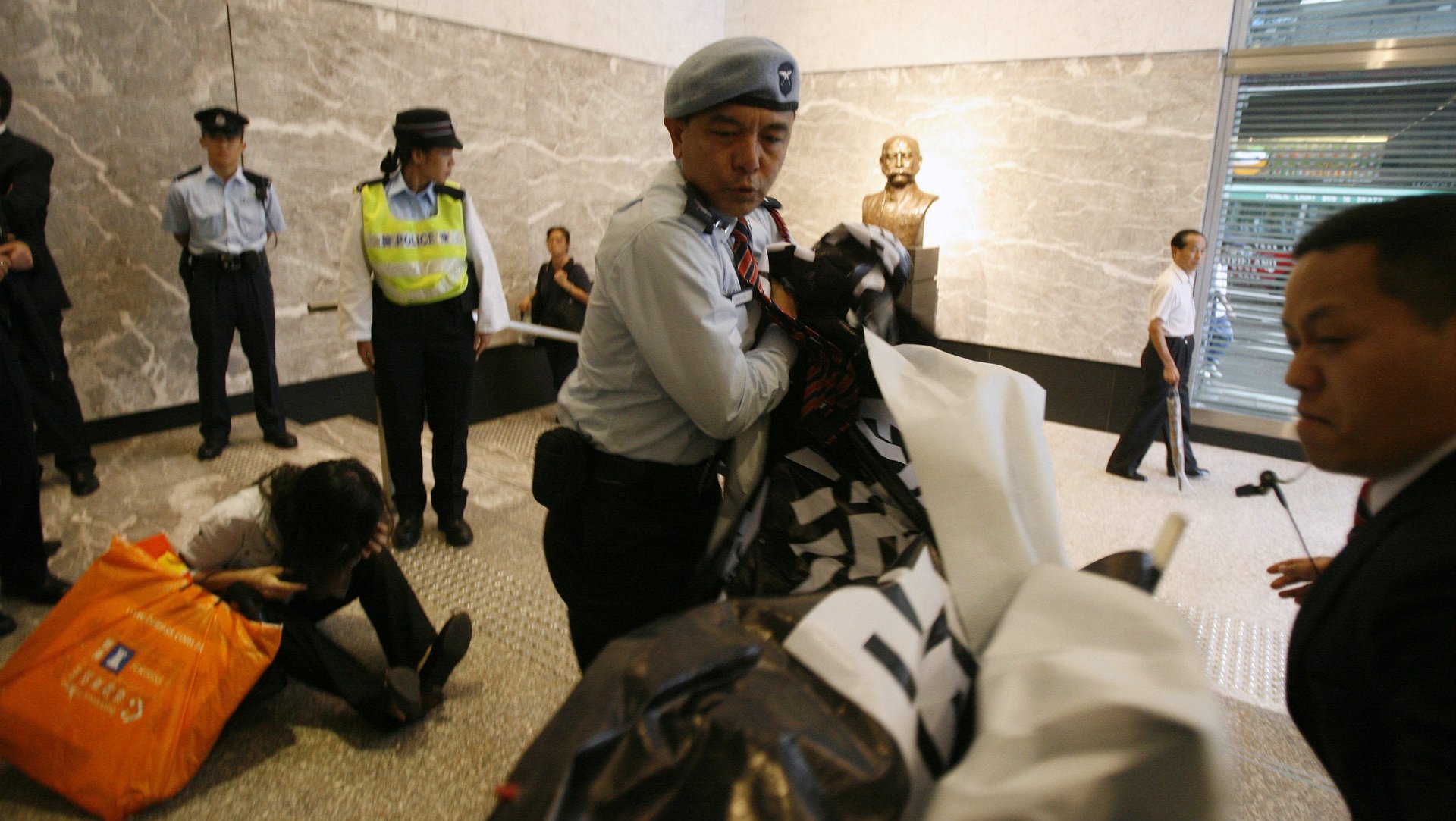New York can thank this Hong Kong regulator for the Alibaba IPO
This article has been corrected.


This article has been corrected.
Alibaba plans to hold its estimated $15 billion initial public offering in New York, ending months of speculation—much of it fueled by Alibaba itself—that the China’s biggest e-commerce company might usher in a new era of technology listings in Hong Kong.
Alibaba’s founders and managers wanted to retain control of the company’s board of directors,* which is forbidden under Hong Kong’s rules. Although some exchange officials and countless bankers signaled they were in favor of changing the rules, Alibaba ultimately ran into staunch opposition from Hong Kong’s powerful regulator, the Securities and Futures Commission.
Alibaba has not “fallen foul of the stock exchange, they have fallen foul of the SFC,” one person involved in the regulatory process told the Wall Street Journal recently. Earlier reports detail the SFC’s determination not to make any changes that could be interpreted as doing favors for Alibaba.
Despite their reported clout, the SFC’s board members and executives mostly shun the limelight, and seem, at least at first glance, to be a curious throwback to an earlier era in Hong Kong.
While many of the special administrative region’s government offices and banks now include professionals from mainland China, the SFC looks much like it did when it was started in 1989, run by six executive directors drawn from the ranks of former lawyers, accountants and compliance officers who spent their professional lives in Hong Kong, the US, the UK or Australia. The regulators 8 non-executive directors, each of whom have one vote just as executive directors do, mostly have similar backgrounds, although Mary Ma Xuezheng is from mainland China.
And while many policy-makers and executives in Hong Kong say that the city’s future lies with mainland China, the SFC’s over-arching focus appears to be keeping Hong Kong’s huge number of domestic retail investors safe—a focus that in part explains its aversion to lifting long-standing rules. The regulator also monitors small-fry brokers and mediates disputes, but hands off prosecution to Hong Kong’s Department of Justice.
Failing to keep Hong Kong’s investors happy can result in public spectacle. Martin Wheatley, an earlier chairman of the SFC, was burnt in effigy by irate investors after Lehman Brothers collapsed. Wheatley’s description of his tenure to the Independent seems to indicate he was a bit traumatized by the experience:
In Hong Kong I think my record was 11 hours in one session in front of the legislative council. They would be shouting at me in Cantonese and I would be listening to an ear piece to an interpreter trying to say to me what was being said in English.
In the wake of Alibaba’s abandonment of Hong Kong, Charles Li, the head of the Hong Kong Exchange, promised that change was afoot, telling the South China Morning Post:
We would not bend our existing rules just for one applicant, but Alibaba’s proposal has propelled the management to review our operating model. The eventual loss may be even larger if we don’t undergo reforms [of the] listing regime.
The SFC, on the other hand, had no comment on the Alibaba situation whatsoever.
*An earlier version of this story included the information that this control was sought through a dual class of stock. It is not.